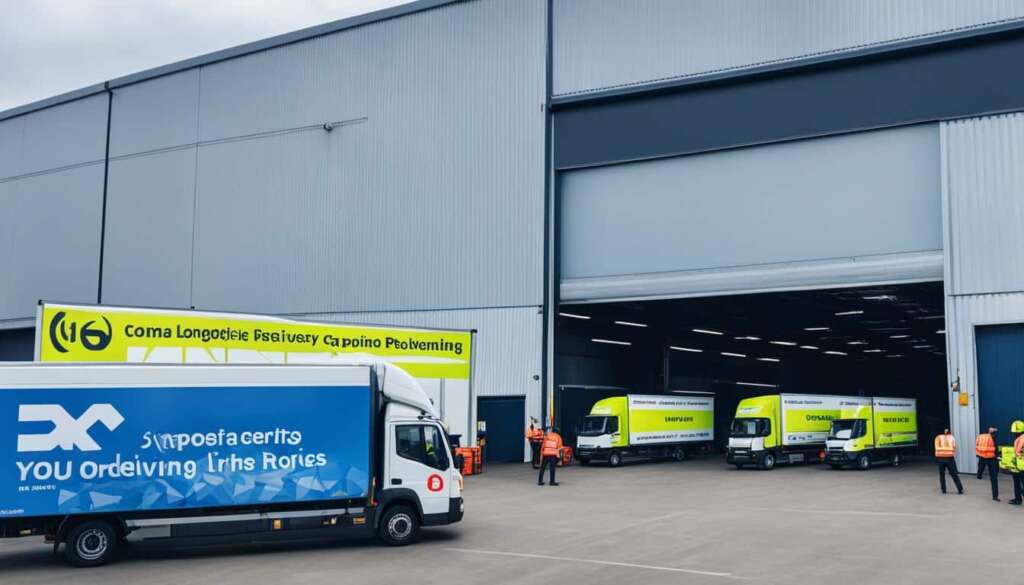Table of Contents
Logistics management is critical for the success of any business. It involves the processes of planning, coordinating, and implementing the movement of goods and services from the point of origin to the point of consumption. One critical aspect of logistics is Third-Party Logistics (3PL).
So, what is 3PL mean? 3PL, or Third-Party Logistics, is a service provided by an external company that takes care of all or part of a business’s logistics needs. In other words, businesses outsource their logistics operations to specialized companies, allowing them to focus on their core competencies.
3PL plays a vital role in logistics. As per the Capgemini’s 2020 Third-Party Logistics Report, 86% of shippers consider their 3PL relationships to be successful. 3PL providers offer a range of services, from warehousing and transportation to supply chain management and distribution. By leveraging their expertise, businesses can improve their supply chain operations, reduce costs, and increase efficiency.
Key Takeaways
- 3PL stands for Third-Party Logistics, which involves outsourcing parts of a business’s logistics operations to specialized providers.
- 3PL providers offer a range of services, from warehousing and transportation to supply chain management and distribution.
- Outsourcing logistics operations to 3PL providers can help businesses reduce costs and increase efficiency.
- 86% of shippers consider their 3PL relationships to be successful.
- Understanding the role of 3PL in logistics is crucial for businesses seeking to streamline their supply chain operations.
Defining Third-Party Logistics (3PL)
Third-party logistics, commonly referred to as 3PL, is a crucial aspect of modern logistics management, offering a range of services that aid businesses in streamlining their supply chain operations. 3PL refers to the outsourcing of logistics activities, such as transportation, warehousing, and distribution, to external providers that specialize in logistics management.
The essence of 3PL lies in its diverse range of services, which can be customized to suit the unique needs of each business. Some of the services offered by a 3PL provider include:
- Transportation management, which involves the planning, execution, and optimization of transportation operations
- Inventory management, which includes managing product inventory throughout the supply chain, from supplier to end-consumer
- Warehousing and distribution, which involves the storage, handling, and delivery of products
- Freight forwarding, which includes the shipment of goods to various destinations, locally or internationally.
The benefits of utilizing 3PL services are numerous, with cost-effectiveness and efficiency being the most significant. By leveraging the expertise of 3PL providers, businesses can streamline their supply chains, improve overall efficiency, and reduce operational costs.
In the next section, we will examine the specific role that 3PL plays in optimizing supply chains, exploring how it can aid in enhancing efficiency, reducing costs, and improving customer satisfaction.
The Role of 3PL in Optimising Supply Chains
Third-party logistics (3PL) providers play a vital role in optimising supply chains. By leveraging their industry expertise and comprehensive suite of services, including transportation, warehousing, and inventory management, they can help businesses increase efficiency, reduce costs, and deliver products to customers more quickly and reliably.
One key area of focus for 3PL providers is supply chain optimisation. They can help businesses identify areas for improvement and create tailored solutions to streamline operations and maximise profitability. This may involve leveraging technology to automate and track key processes, such as order fulfilment and transportation, or implementing lean methodologies to minimise waste and increase efficiency.
“By outsourcing logistics services to a 3PL provider, businesses can not only reduce costs but also free up valuable internal resources to focus on core competencies and strategic goals.”
Another important aspect of 3PL’s role in supply chain optimisation is cost-effectiveness. By partnering with a 3PL provider, businesses can often take advantage of economies of scale and gain access to discounted rates for transportation, warehousing, and other services. This can help to reduce overall costs and improve margins, allowing businesses to reinvest savings in growth and innovation activities.
In summary, 3PL providers bring significant expertise and resources to bear on supply chain optimisation, helping businesses improve efficiency, reduce costs, and increase customer satisfaction. By leveraging the comprehensive suite of services offered by 3PL providers, businesses can stay competitive in today’s rapidly-evolving business environment.
Conclusion
In conclusion, understanding the meaning of 3PL in logistics is crucial for businesses seeking to enhance their supply chain operations. By defining third-party logistics and highlighting its range of services, we have shown that utilizing 3PL providers can lead to significant advantages and benefits, such as improved efficiency, cost-effectiveness, and customer satisfaction.
Through our exploration of the specific role that 3PL plays in optimizing supply chains, we have demonstrated how businesses can benefit from the expertise of these providers in logistics management and strategic planning.
In summary, the key takeaway from this article is that businesses need to consider 3PL services as an essential aspect of modern logistics management to stay competitive in today’s fast-paced market. By doing so, they can gain a competitive advantage and achieve their business goals more effectively.
FAQ
What does 3PL mean in logistics?
3PL stands for third-party logistics. It refers to the outsourcing of logistics operations to a specialized provider, known as a 3PL provider. These providers offer a wide range of services, including transportation, warehousing, inventory management, and distribution, to streamline supply chain processes for businesses.
What is the definition of third-party logistics (3PL)?
Third-party logistics, or 3PL, refers to the outsourcing of logistics activities to a third-party provider. These providers have expertise in managing and optimizing supply chain processes. They offer services such as transportation, inventory management, order fulfillment, and warehousing, allowing businesses to focus on their core operations while benefiting from the capabilities and resources of the 3PL provider.
What are the advantages of using 3PL services?
Utilizing 3PL services comes with several advantages for businesses. Firstly, it allows companies to tap into the expertise and knowledge of logistics professionals, ensuring efficient and effective supply chain management. Additionally, 3PL providers have existing networks and resources, enabling businesses to leverage economies of scale and cost savings. Outsourcing logistics activities also frees up time and resources for companies to focus on their core competencies and strategic initiatives.
How does 3PL optimize supply chains?
3PL plays a crucial role in optimizing supply chains by leveraging their expertise in logistics management and strategic planning. They use advanced technology and analytics to enhance visibility, track shipments, and optimize inventory levels. By centralizing and consolidating various logistics operations, 3PL providers improve efficiency, reduce costs, and enhance overall supply chain performance. They also provide value-added services, such as reverse logistics and order fulfillment, to ensure customer satisfaction.
What are the key takeaways of understanding 3PL in logistics?
Understanding what 3PL means in logistics is essential for businesses seeking to streamline their supply chain operations. Incorporating 3PL services can bring numerous benefits, including improved efficiency, cost-effectiveness, and customer satisfaction. By outsourcing logistics activities, companies can focus on their core competencies while relying on the expertise and resources of specialized 3PL providers. Exploring the potential of 3PL can lead to enhanced supply chain optimization and overall business success.












